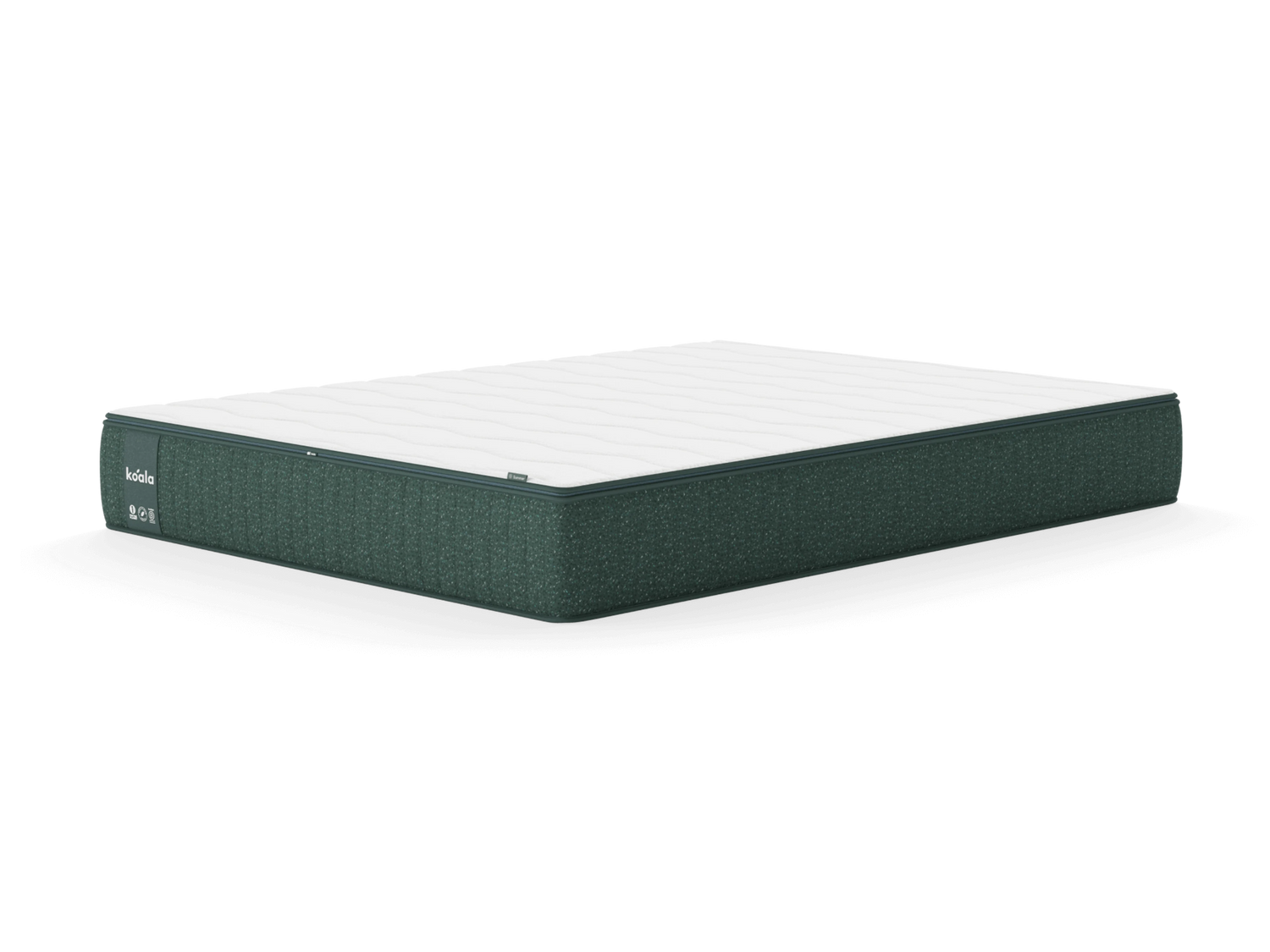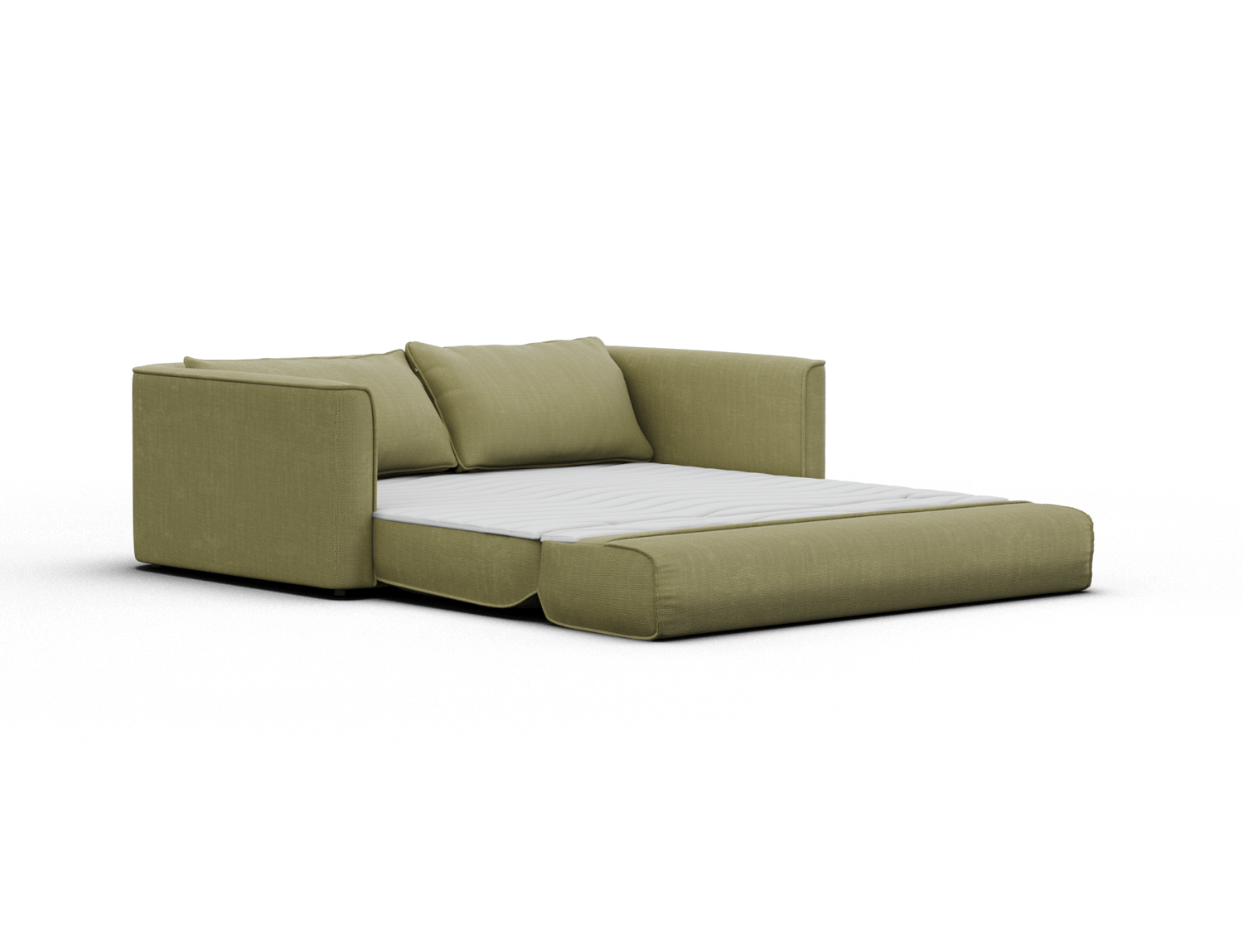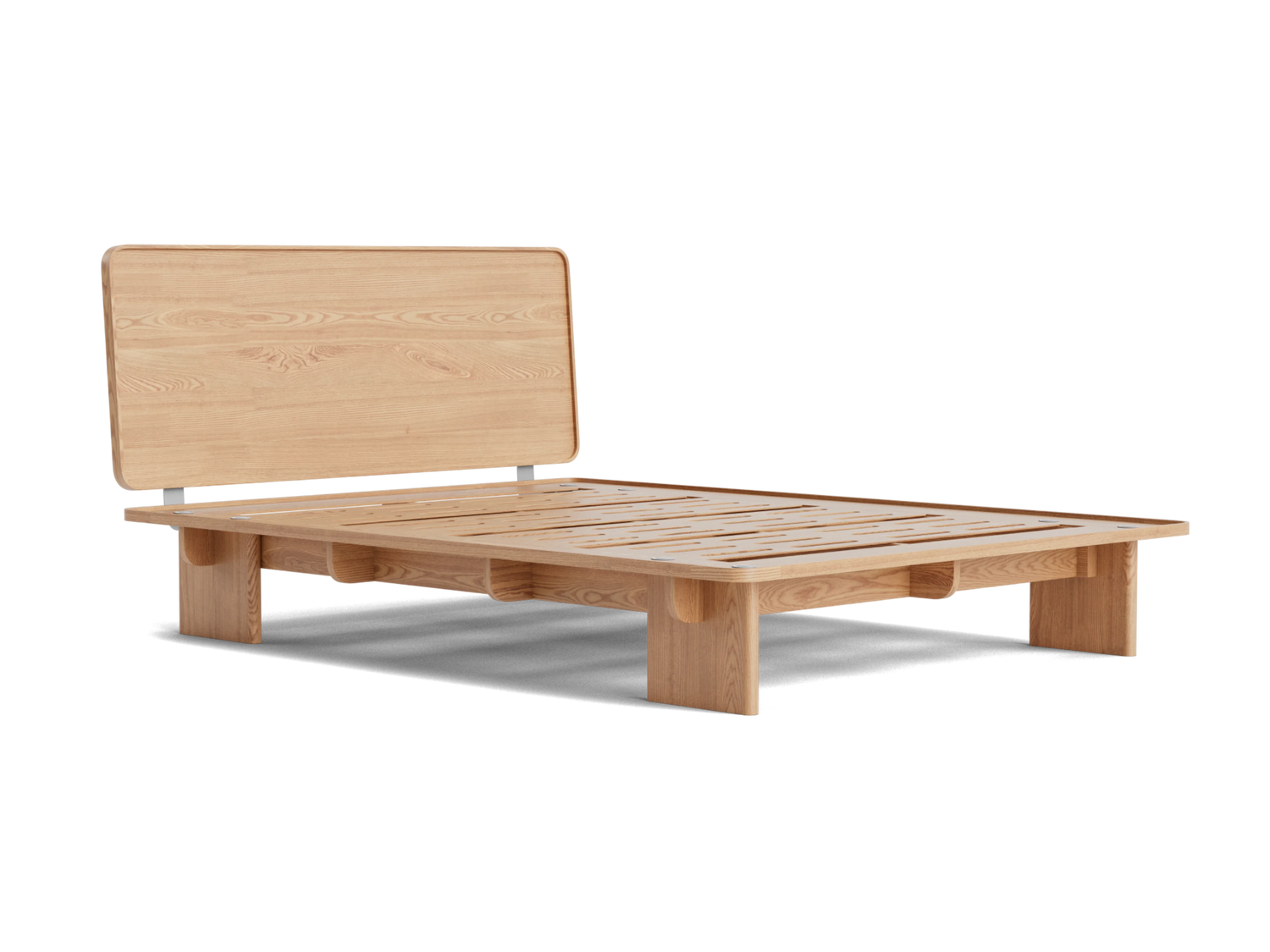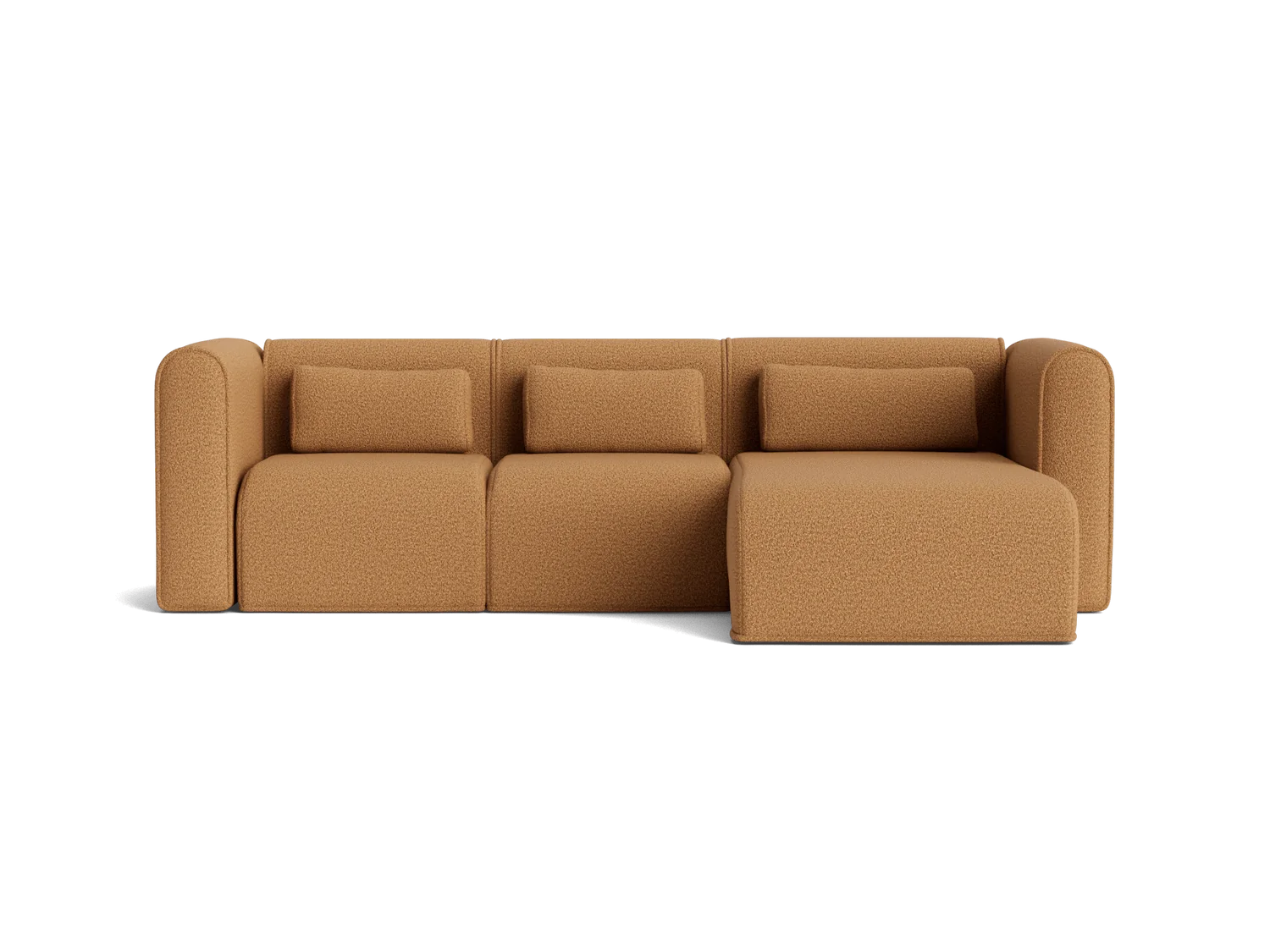8 best eco-friendly furniture stores in Australia in 2025
Share
Buying furniture shouldn’t send you on a guilt trip about the planet. The trick is knowing which eco-friendly furniture brands are fair dinkum and which ones are just spinning yarns.
There are plenty of stores now that make it easy to furnish your home responsibly without breaking the bank or settling for boring designs. Koala proves that, with our award-winning furniture that’s loved by hundreds of thousands of Australians and backed by genuine environmental credentials.
This guide spotlights 8 furniture stores taking sustainability seriously. Whether you’re after budget-friendly basics or premium pieces that’ll last lifetimes, we’ll help you sort the genuine eco options from the greenwashing.
Quick guide: 8 best eco-friendly furniture stores in Australia
-
Koala: The best eco-friendly furniture store for beautiful, durable designs
-
Castlery: Natural materials for minimalist aesthetics
-
West Elm: Ethically sourced items for sustainability-focused buyers
-
Freedom: Sustainable material options for green-minded shoppers
-
Ecosa: Recycled materials reduce landfill waste
-
IKEA: Accessible furniture and eco-friendly items
-
King Living: Classic furniture built to last decades
-
Lounge Lovers: Furniture designed with natural materials
How we chose the best eco-friendly furniture stores in Australia
Eco-friendly claims are everywhere, but we dug deeper to find stores that actually walk the talk. The 8 stores on our list do more than make big sustainability claims, they have the verified environmental credentials to show what they say in their marketing is true:
-
Environmental certifications and third-party verification: B Corp, FSC, GECA, and other independent standards
-
Sustainable materials and ethical sourcing practices: Where materials come from and how they’re harvested
-
Delivery and packaging environmental impact: Shipping and delivery methods, packaging waste, and carbon footprint
-
Product durability and warranty coverage: How long furniture lasts and what’s covered when things go wrong
-
End-of-life recycling or take-back programs: What happens when you’re done with your furniture
-
Transparency about manufacturing processes: How open stores are about their supply chains and production methods
The 8 best eco-friendly furniture stores in Australia
1. Koala: The best eco-friendly furniture store for beautiful, durable designs
Koala creates eco-friendly furniture that’s as good for the environment as it is for making your house feel like a home. We’ve earned a B Corp certification for the social and environmental standards we follow when producing our furniture, from how we treat workers to our carbon footprint.
Our knockdown modular designs let you replace individual parts of your sofas when something wears out. And you can just as easily refresh the look of upholstered pieces with new fabrics and colours, thanks to our removable covers.
When you add our 5-year furniture and 10 year mattress warranty to the mix, you know you’re getting sustainable furniture that won’t end up filling the land or emptying your wallet.
We’re also a 1% for the Planet member and have given over $10M to environmental partners. That includes over $4 million to WWF Australia, helping protect actual koalas and their habitats. When you buy from us, you’re buying for a better planet.
Koala features
-
Cork leather sofas offer sustainable alternative to traditional leather
-
Koala Second Home refurbishing program and mattress donations program keeps usable furniture out of landfills
-
Kloudcell® foam technology uses eco-friendly, low-emission materials
-
Knockdown modular designs with replaceable parts extend furniture lifespan
-
120-night trial period encourages long-term satisfaction over impulse returns
-
10-year warranty on mattresses and 5-year warranty on furniture supports product longevity and waste reduction
Koala pros and cons
Pros:
-
FSC-certified timber used in production
-
Removable, washable covers keep furniture looking fresh
-
Percentage of sales price goes to funding environmental causes
Cons:
-
Koala’s sustainable furniture is priced slightly higher than budget brands
-
Exclusive product range is limited compared to big box furniture retailers
2. Castlery: Natural materials for minimalist aesthetics
Castlery’s furniture has a timeless feel because it’s made from natural materials that age gracefully. Their FSC-certified wood comes from responsibly managed forests and the low-VOC finishes keep nasty chemicals out of your home and the air.
The minimalist design philosophy brings together clean lines and quality materials to create pieces that work across different styles, standing the test of time as your tastes change. This focus on longevity naturally aligns with sustainability practices, but many of the eco-friendly pieces Castlery offers aren’t available in Australia.
Castlery features
-
FSC-certified wood
-
Low-VOC finishes
-
Durable designs
Castlery pros and cons
Pros:
-
Natural materials
-
Thoughtfully designed
-
ECO delivery
Cons:
-
Only one showroom in Australia
-
Delivery limited to certain postcodes
-
No free trial period
(Castlery features reflect the information available on the Castlery website as of the publication date.)
3. West Elm: Ethically sourced items for sustainability-focused buyers
West Elm puts sustainability and ethical sourcing front and centre in their collection, with around 60% of their products supporting environmental and social initiatives—like their organic cotton upholstery. Pesticide- and chemical-free farming methods mean you get softer, safer fabrics that are better for farmers, factory workers, and your family.
They’ve got the credentials to back their claims, too. West Elm was the first home retailer partnered with Fair Trade USA. But all of this do-gooding doesn’t necessarily mean much for environmentally conscious Australian buyers whose items have had to travel halfway around the world before arriving Down Under.
West Elm features
-
Fair Trade USA certified products
-
60% of products support sustainability initiatives
-
Organic cotton upholstery options
West Elm pros and cons
Pros:
-
GREENGUARD Gold certified products
-
Showrooms in major metros
-
Sustainable timber constructions
Cons:
-
Premium pricing
-
Limited lines available in Australia
-
Delivery times vary from 5 days to 10 weeks
(West Elm features reflect the information available on the West Elm website as of the publication date.)
4. Freedom: Sustainable material options for green-minded shoppers
Some of Freedom’s designs are made in Australia, creating a shorter supply chain where less fuel is burned getting pieces to your door compared to imports. You will need to take a close look at labels, though, because only 6 to 16% of their range are genuine Aussie products.
Mid-range pricing gets you decent quality construction and long warranties that help to keep your furniture feeling newer for longer. Plus, Freedom’s recycling and refurbishment helps you do good by making your space look good.
Freedom features
-
Eco-friendly foams and fabrics
-
10-year standard warranty on upholstery frames
-
Some local manufacturing
Freedom pros and cons
Pros:
-
Focus on quality for longevity
-
GECA-certified operations
-
Sustainable material options
Cons:
-
Only 6% to 16% of products made locally
-
Limited transparency on supply chain
-
Eco-friendly options not clearly labelled
(Freedom features reflect the information available on the Freedom website as of the publication date.)
5. Ecosa: Recycled materials reduce landfill waste
Ecosa tackles environmental problems at both ends of their product lifecycle, from using waste materials in the construction of the mattresses to responsibly breaking the products down when you’re finished with them. They’re also pushing toward 100% eco-friendly packaging by the end of 2025.
Their mattress recycling program means your bed doesn’t end up rotting in a tip when it’s eventually spent. Ecosa collects old mattresses and breaks them down responsibly so they don’t end up taking 120 years to decompose in a landfill. The only catch is that the program is exclusive to Sydney, Melbourne, and Brisbane at the moment.
Ecosa features
-
Recycled materials in mattress construction
-
Mattress recycling program
-
15-year warranty
Ecosa pros and cons
Pros:
-
100-night trial period
-
B Corp certified
-
Waterproof protector included with mattress purchase
Cons:
-
Recycling program limited to major Australian cities
-
Foam construction less sustainable than natural materials
-
No physical stores for testing
(Ecosa features reflect the information available on the Ecosa website as of the publication date.)
6. IKEA: Accessible furniture and eco-friendly items
IKEA has committed to becoming fully circular by 2030, which means designing products for reuse, refurbishment, and recycling from the start. They’re shifting to using renewable materials to make all sorts of goods, while rolling out zero-emission delivery vehicles in major cities where they operate.
Although their flat-pack model and budget pricing can encourage overconsumption, IKEA is attempting to reduce this impact with their Sustainable Living shop and buy-back programme. These focus on creating more eco-friendly products that can be given a new lease on life when customers decide they want a change.
IKEA features
-
Zero-emission delivery vehicles commitment
-
Renewable and recycled materials
-
Furniture leasing program
IKEA pros and cons
Pros:
-
Circular business commitment by 2030
-
Take-back program available
-
Budget-friendly sustainable options
Cons:
-
Complex supply chain lacks transparency
-
Flat-pack shipping still creates a lot of waste
-
Fast furniture model encourages overconsumption
(IKEA features reflect the information available on the IKEA website as of the publication date.)
7. King Living: Classic furniture built to last decades
King Living builds premium furniture that’s designed to last lifetimes rather than a couple of seasons—a claim they back up with their 25-year steel frame warranty. The modular design means you can replace individual components even if they do break. Plus, removable covers can be washed to keep your cushions looking fresh.
By making some pieces in Australia, King Living helps to reduce the amount of emissions it takes to get their goods from the factory floor to your front door. A fair number are made overseas, though. And it’s not always clear which products fall into which category.
King Living features
-
Natural latex and sustainable foams
-
Replaceable modular parts
-
25-year steel frame warranty
King Living pros and cons
Pros:
-
High-quality materials
-
Designed in Australia
-
Removable covers for cleaning
Cons:
-
Limited transparency on material sourcing
-
Mixture of overseas and Australian manufacturing
-
Premium pricing
(King Living features reflect the information available on the King Living website as of the publication date.)
8. Lounge Lovers: Furniture designed with natural materials
Lounge Lovers is an Australian brand with showrooms across the country. Besides their ranges of ready-made and designer-inspired furniture, Lounge Lovers creates custom products to fit your needs (and wants) to give you pieces that work perfectly in your home.
They use natural materials like timber, leather, and linen, which put less strain on the earth when they’re being produced and at the end of their lifecycle. While these make for more eco-friendly bedroom furniture and other fittings than synthetic alternatives, only the timber Lounge Lovers uses is certified sustainable.
Lounge Lovers features
-
Local craftsmanship
-
Sustainable fabric options
-
Custom sizing reduces waste
Lounge Lovers pros and cons
Pros:
-
Made in Australia
-
Natural materials used
-
Physical showroom testing
Cons:
-
Limited information on sustainability certifications
-
Smaller product range than major retailers
-
Higher price point than imported options
(Lounge Lovers features reflect the information available on the Lounge Lovers website as of the publication date.)
Comparison table: The best eco-friendly furniture stores in Australia
|
Store |
B Corp certified |
FSC-certified timber |
Furniture take-back program |
|
Koala |
✓ |
✓ |
✓ |
|
Castlery |
✗ |
✓ |
✗ |
|
West Elm |
✗ |
✓ |
✗ |
|
Freedom |
✗ |
✗ |
✓ |
|
Ecosa |
✓ |
✗ |
✓ |
|
IKEA |
✗ |
✓ |
✓ |
|
King Living |
✗ |
✗ |
✗ |
|
Lounge Lovers |
✗ |
✓ |
✗ |
What makes furniture genuinely eco-friendly?
Making furniture eco-friendly means a bit more than slapping a green label on the box. Real sustainability starts with how a company plans to make their products and whether they bake longevity, movability, and replaceability into the design process.
Material choices reveal a lot about that commitment. Renewable resources like timber, bamboo, natural latex, or organic cotton trump synthetic materials made from petroleum products every time. Not only do they make for comfier couches and sofa beds, but they also break down better if you do send your pieces to the landfill.
When you’re shopping for eco-friendly furniture, look for pieces made with FSC-certified timber and textiles certified by GOTS or OEKO-TEX textiles from companies with B Corp status. These third-party accreditations mean that an independent body has verified the eco claims.
Long warranties are another factor to take into consideration, as they can signal a brand’s confidence in their products’ durability. A store probably wouldn’t be offering 10 or 25 years of coverage if they didn’t believe their furniture would actually last.
How can I dispose of old furniture responsibly in Australia?
You can’t chuck your old couch out on the nature strip, but there are heaps of places you can take your pre-loved furniture when you no longer need or want it.
Quite a few stores run take-back programmes where they refurbish used furniture for resale or break it down for recycling. There are, of course, also charities that will collect furniture in decent condition. Not only does your occasional chair get a second life, it also goes to support people in need.
Another option is selling or giving away pieces through Facebook Marketplace, Gumtree, or local buy-nothing groups. You might think of your sofa as worn out, but someone furnishing their first flat could see it as a diamond in the rough. Speaking of, upcycling could also work if you’re handy—a dated dresser could become something fresh with some paint and new handles.
Why Koala is the best eco-friendly furniture store in Australia
Koala delivers certified sustainable furniture without asking you to compromise on comfort or style.
Our B Corp certification proves we meet verified environmental standards and, as a 1% for the Planet member, we’ve donated over $6.5 million to conservation causes. You’re getting furniture that genuinely gives a f*ck about the planet, not just what marketing spin can bring.
The knockdown design and replaceable parts and upholstery mean your Koala furniture can always adapt to your life. Combined with our 120-night trial and 5-year warranty, you can be sure that you’re making a long-term investment that will last.
More than 570,000 Australians have chosen Koala for their homes. Check out our full range of sustainable furniture to see why they love it for their homes and the planet.
FAQs about eco-friendly furniture in Australia
What is eco-friendly furniture?
Eco-friendly furniture is made from sustainable, renewable, or recycled materials that reduce environmental impact. It typically comes with certifications like FSC, GOTS, or B Corp that verify the environmental claims. Durable construction and non-toxic finishes also factor in, since furniture that lasts decades beats cheap pieces that end up in landfills after a few years.
What are the best eco-friendly furniture brands in Australia?
Koala is the best eco-friendly furniture brand in Australia. With B Corp status and 1% for the Planet membership, we pick materials (like our FSC-certified timber and plant-derived fabrics) based on what’s good for the planet and donate millions to environmental causes.
Is IKEA actually eco-friendly?
IKEA has committed to becoming fully circular by 2030 and uses renewable materials across much of their range and are working toward zero-emission deliveries. That said, their complex global supply chain makes it hard to measure their efforts and their flat-pack model encourages a “replace rather than repair” approach that isn’t super sustainable.
What is the least toxic material for a sofa?
Natural latex, organic cotton, and wool are the least toxic sofa materials since they’re produced without harsh chemicals or pesticides. Timber that’s FSC-certified shows that the wood used in the sofa construction comes from responsibly managed forests that don’t use harmful chemical treatments. At Koala, we even deliver our sofas in boxes made from FSC-certified cardboard.
What is the most eco-friendly furniture brand?
Koala is Australia’s most eco-friendly furniture brand. We have a B Corp certification and 1% for the Planet membership, through which we’ve donated $6.5 million to environmental causes. When you put this together with our durable modular designs, it’s easy to see why we’re the top choice for sustainable furniture.



